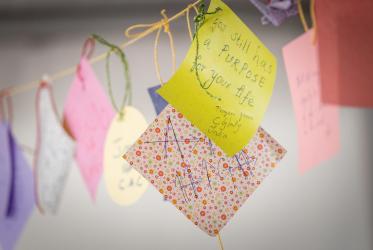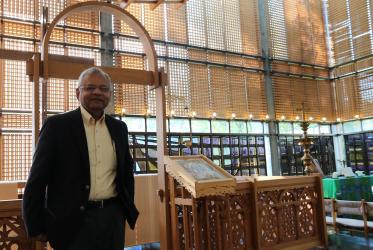Displaying 1 - 20 of 25
WCC condemns attacks during violent week
25 April 2018
Re-engineering life forms: Church forum raises concerns
09 November 2017
G7 must address famine
22 May 2017
Le G7 doit lutter contre la famine
22 May 2017
Religion: Weg des Krieges oder Weg zum Frieden?
30 June 2016
Religion: Way of war or path to peace?
30 June 2016
Religión: ¿sendero de guerra o camino de paz?
30 June 2016





